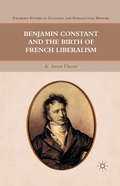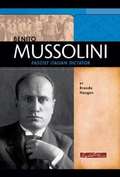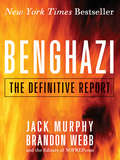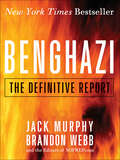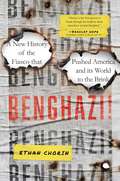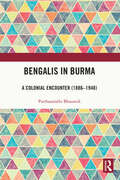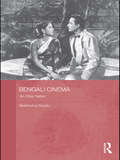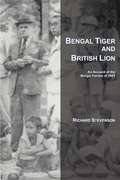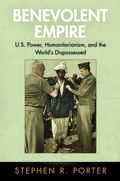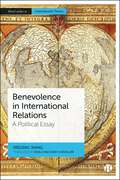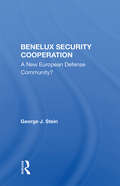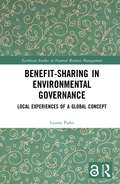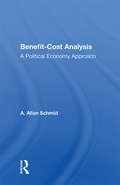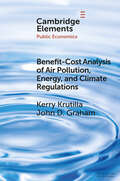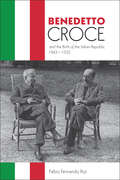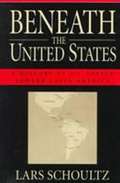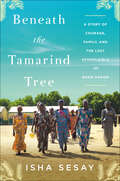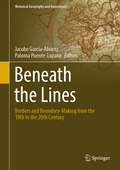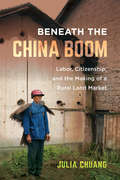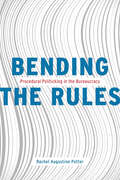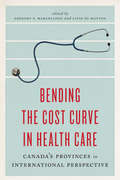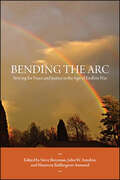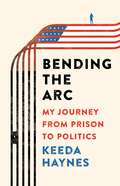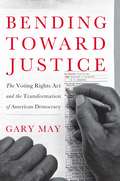- Table View
- List View
Benjamin Constant and the Birth of French Liberalism (Palgrave Studies in Cultural and Intellectual History)
by K. Steven VincentThis book advances a new interpretation of the timing and character of French (and more broadly European) liberalism, and contributes to the ongoing debate concerning the place of morality, sociability, and conceptions of the "self" in modern liberal thought.
Benito Mussolini: Fascist Italian Dictator
by Brenda HaugenFrom 1900 to the present day, humanity and the world have undergone major changes. Drastic shifts in theories and practice tested the standards of personal freedoms and religious conventions as well as science, technology, and industry. The new mind-set of the modern world includes a focus on humanitarianism and the belief that a global economy has made the world a more connected place. Starting as a fascist newspaper editor in the early 1900s, Benito Mussolini rallied enough support to become prime minister of Italy in 1922. He would go on to lead Italy into World War II and befriend Adolf Hitler, the Nazi leader of Germany. Even with the help of his powerful ally, Mussolini's war efforts would not succeed. Mussolini resigned from power and was executed by his own countrymen
Benito Juárez Fights for Justice
by Beatriz Gutierrez HernandezFrom the incredible illustrator of Dreams from Many Rivers comes the story of Benito Juárez, a man who devoted himself to his country and became president of Mexico.Juárez grew up in a village filled with orange trees, surrounded by the mountains of Oaxaca. As he got older, he wondered: How could such a paradise be home to hungry children, temples in ruins, and shacks made out of straw and branches? Armed with a deep-seated belief in justice, he set out to make a difference.Following Juárez from his childhood to his career in politics, this is a story of hope and determination.Godwin Books
Benghazi: The Definitive Report
by Jack Murphy Brandon WebbOn September 12th, 2012, Brandon Webb learned Glen Doherty, one of his closest friends and his former Navy SEAL teammate, was killed alongside Ambassador J. Christopher Stevens and two other Americans when the U. S. State Department and CIA headquarters in Benghazi, Libya, were sieged in a shocking terrorist attack. For the next four months, Webb and his team at SOFREP. com, the world's premier Special Ops website, embarked on a relentless investigation to understand exactly what happened to their countrymen, as well as the roles played by the Obama administration, State Department, and CIA. Drawing on unmatched sources, they spoke to individuals who would talk to no one else, including fellow Special Operations team members familiar with the African theatre, and well-placed contacts in the Washington intelligence community. This is their report--an unforgettably gripping minute-by-minute narrative of the events and their aftermath as they really unfolded on that terrible day in Libya.
Benghazi: The Definitive Report
by Jack Murphy Brandon WebbNEW YORK TIMES BESTSELLERWritten by the team of former Special Operations warriors who run SOFREP.com, here is the definitive account of what happened before, during, and after the deadly Benghazi attack that claimed the lives of four Americans.On September 12th, 2012, Brandon Webb learned Glen Doherty, one of his closest friends and his former Navy SEAL teammate, was killed alongside Ambassador J. Christopher Stevens and two other Americans when the U.S. State Department and CIA headquarters in Benghazi, Libya, were sieged in a shocking terrorist attack. For the next four months, Webb and his team at SOFREP.com, the world’s premier Special Ops website, embarked on a relentless investigation to understand exactly what happened to their countrymen, as well as the roles played by the Obama administration, State Department, and CIA. Drawing on unmatched sources, they spoke to individuals who would talk to no one else, including fellow Special Operations team members familiar with the African theatre, and to well-placed contacts in the Washington intelligence community. This is their report—an unforgettably gripping minute-by-minute narrative of the events and their aftermath as they really unfolded on that terrible day in Libya.
Benghazi!: A New History of the Fiasco that Pushed America and its World to the Brink
by Ethan ChorinIn recognition of the 10th anniversary of the attack in Benghazi, a noted Libya expert and eyewitness to the attack provides a startling reconsideration of one of the defining controversies of our era. Ten years after an attack on the US diplomatic mission in Benghazi killed Ambassador Christopher Stevens and three other Americans, cries of "Benghazi!" still echo across America. But instead of a landmark event to be taken seriously, it has become a punchline, an empty word, or a code for controversy and political theatre. In this thrilling retelling, Ethan Chorin reveals Benghazi as a watershed moment in American history, one that helped create the world America lives in today: polarized, fearful, and dangerously unstable. Here, Benghazi is not a story contained in 13 hours, but a decades-long history beginning with the rise of Muammar Gaddafi, stretching through 9/11, the War on Terror, and the Arab Spring, and reaching into the present day, as the impact of the attack and ensuing controversy remain visible in America and around the world. Chorin draws on his own bone-chilling experience during the Benghazi attack, his expertise as a former diplomat and scholar of Libyan history, and new interviews with Libyan insiders, eyewitnesses, and key players like Hillary Clinton and Ben Rhodes. With this ambitious, engaging narrative, Chorin makes clear why Benghazi still matters so much ten years later—and why we can&’t afford to continue overlooking and misunderstanding it.
Bengalis in Burma: A Colonial Encounter (1886–1948)
by Parthasarathi BhaumikBengalis in Burma looks at Bengali migrations and settlements in Burma from 1886 until the end of the British rule in Burma in 1948. As a result of British colonial policies, thousands of Bengalis from various classes and places in Bengal migrated to Burma and established Bengali communities in different parts of the country. The book provides a study of a vast body of Bangla writings on Burma written during this period by the Bengalis, a majority of whom went to Burma in various capacities and with various objectives. It takes note of a complex network of power, subjugation, and resistance which is integrally related to these acts of representation in Bangla textual discourses. Drawing on stories, political discussions in Bangla journals, unknown autobiographies, travelogues, and uncelebrated poems, it explores the ways contemporary Bengalis looked at Burma for various reasons and wondered about their locations within colonial systems. An important contribution to the study of South Asia, the book brings forth issues of representation, colonial knowledge system, and modernity. It will be of interest to students and researchers of history, literature, migration studies, colonialism, and South Asian studies.
Bengali Cinema: 'An Other Nation' (Routledge Contemporary South Asia Series)
by Sharmistha GooptuCovering the years spanning cinema’s emergence as a popular form in Bengal in the first half of the twentieth century, this book examines the main genres and trends produced by this cinema, and leads up to Bengali cinema’s last phase of transition in the 1980s. Arguing that Bengali cinema has been a key economic and social institution, the author highlights that the Bengali filmic imaginary existed over and above the imaginary of the Indian nation. This book argues that a definitive history of Bengali cinema presents an alternative understanding to the currently influential notion of the Hindi film as the ‘Indian’ or ‘national’ cinema. It suggests that the Bengali cinema presents a history which brings to the fore the deeply contested terrain of ‘national’ cinema, and shows the creation of the ‘alternative imaginary’ of the Bengali film. The author indicates that the case of the Bengali cinema demonstrates the emergence of a public domain that set up a definitive discourse of difference with respect to the ‘all-India’ Hindi film, popularly classified as Bollywood cinema, and which pre-empted its subsumption within the more pervasive culture of the Bombay Hindi cinema. As the first comprehensive historical work on Bengali cinema, this book makes a significant contribution to both Film and Cultural Studies and South Asian Studies in general.
Bengal Tiger and British Lion: An Account of the Bengal Famine of 1943
by Richard StevensonThis history of the Bengal Famine of 1943 describes the interplay of politics, economics, sociology and military policy, which caused a famine due to a lack of cash, not a lack of food. The Famine, whose story is almost unknown due to wartime censorship by the British, occurred because of a hyperinflation in the price of rice caused by the provisioning for the major offensive against the Japanese on India's eastern borders. Relief efforts were halfhearted because much of the countryside was in a state of endemic revolt against the British. The logistical problems caused by massive gifts of food by the British and Indian troops to the starving people threatened to stall the forthcoming offensive. The cause of the Famine was the deadly alienation between the Bengalis and their British rulers.
Benevolent Empire: U.S. Power, Humanitarianism, and the World's Dispossessed (Pennsylvania Studies in Human Rights)
by Stephen PorterStephen Porter's Benevolent Empire examines political-refugee aid initiatives and related humanitarian endeavors led by American people and institutions from World War I through the Cold War, opening an important window onto the "short American century." <P><P>Chronicling both international relief efforts and domestic resettlement programs aimed at dispossessed people from Europe, Latin America, and East Asia, Porter asks how, why, and with what effects American actors took responsibility for millions of victims of war, persecution, and political upheaval during these decades. Diverse forces within the American state and civil society directed these endeavors through public-private governing arrangements, a dynamic yielding both benefits and liabilities. <P><P>Motivated by a variety of geopolitical, ethical, and cultural reasons, these advocates for humanitarian action typically shared a desire to portray the United States, to the American people and international audiences, as an exceptional, benevolent world power whose objects of concern might potentially include any vulnerable people across the globe. <P><P>And though reality almost always fell short of that idealized vision, Porter argues that this omnivorous philanthropic energy helped propel and steer the ascendance of the United States to its position of elite global power. <P><P>The messaging and administration of refugee aid initiatives informed key dimensions of American and international history during this period, including U.S. foreign relations, international humanitarianism and human rights, global migration and citizenship, and American political development and social relations at home. Benevolent Empire is thus simultaneously a history of the United States and the world beyond.
Benevolence in International Relations: A Political Essay (Bristol Studies in International Theory)
by Frédéric RamelIn this first English-language edition of a sole-authored book from Frédéric Ramel, benevolence is defined as a moral principle which promotes temperance and attention to vulnerability. Ramel unpacks this concept, analyses its received meanings in different contexts and spells out its practical and ethical implications in detail. In preparing this work for an English-speaking readership, the author undertook extensive revisions and included two additional chapters. It also includes a foreword from Chris Brown, Emeritus Professor of International Relations at the London School of Economics and Political Science. The French edition was published as La Bienveillance Dans Les Relations Internationales.
Benelux Security Cooperation: A New European Defense Community?
by George J. SteinThis book is an exploration of the security and defense policies of Belgium, the Netherlands, and Luxembourg with the specific goal of discovering opportunities for greater Benelux security cooperation which could serve as the foundation of a European Defense Community.
Benefit-sharing in Environmental Governance: Local Experiences of a Global Concept (Earthscan Studies in Natural Resource Management)
by Louisa ParksTaking a bottom-up perspective, this book explores local framings of a wide range of issues related to benefit-sharing, a growing concept in global environmental governance. Benefit-sharing in Environmental Governance draws on original case studies from South Africa, Namibia, Greece, Argentina, and Malaysia to shed light on what benefit-sharing looks like from the local viewpoint. These local-level case studies move away from the idea of benefit-sharing as defined by a single international organization or treaty. Rather, they reflect different situations where benefit-sharing has been considered, including agriculture, access to land and plants, wildlife management, and extractives industries. Common themes in the experiences of local communities form the basis for an exploration of spaces for local voices at the international level in the Convention on Biological Diversity (CBD), often argued to be the most open arena to non-state actors, and therefore vital to how local voices may be included at the global level. The book analyzes the decisions of the CBD parties to produce an in-depth reflection on how this arena builds and delimits spaces for the expression of local community themes, and paths for local community participation including community protocols. The book then situates the bottom-up findings in the wider debate about global civil society and deliberative democracy in environmental governance. This interdisciplinary book will be of great interest to students and scholars of environmental politics, environmental law, political ecology and global governance, as well as practitioners and policymakers involved in multilateral environmental agreements.
Benefit-cost Analysis: A Political Economy Approach
by A. Allan SchmidChoice is the name of the game. Government sets the size of the public budget and decides which public projects it will invest in and which transfers and regulations it will implement. To do this systematically the government must have a procedure that displays the consequences of the alternatives. This book is an exposition of benefit-cost analysis (BCA), an analytic framework for organizing thoughts, listing the pros and cons of alternatives, and determining values for all relevant factors so that the alternatives can be ranked. A major question illuminated by this text is whether the results of such an analysis can instruct government--in the sense of telling it what it must do to avoid being labelled stupid, corrupt, irrational, and/or inefficient. How and when, we will ask, can the benefit-cost analyst label a particular governmental investment, policy, or regulation as political (in the pejorative sense) as opposed to economic (in the laudatory sense of being economically justified)? This book will argue that BCA is much like a consumer information system. Consumer information neither tells consumers what to do nor tells them what they should want. However, it does tell them which products will perform in selected ways and at what costs. And this information, together with the independently arrived at wants, helps the consumer make intelligent choices.
Benefit-Cost Analysis of Air Pollution, Energy, and Climate Regulations (Elements in Public Economics)
by John D. Graham Kerry KrutillaThis element offers a review and synthesis of the research on economic methods for evaluating regulations that improve air quality, save energy, and reduce climate risks. The intended audience is regulators and other constituencies interested in the nexus between scholarship and practice; analysts in government agencies and research organizations; and academic scholars and their graduate students. Topics include the evolution of regulatory impact assessment in the OECD; cost estimation, including engineering, partial equilibrium, and general equilibrium approaches; benefit valuation, with an emphasis on the value of reducing risk of illness and premature mortality, and methods for pricing carbon emissions; discounting methods, and their relationship to carbon pricing; the distribution of regulatory costs and benefits; and uncertainty evaluation methods for addressing less and more fundamental uncertainty. Perspective on the relevance and limitations of current research is offered. This title is also available as Open Access on Cambridge Core.
Benedetto Croce and the Birth of the Italian Republic, 1943–1952 (Toronto Italian Studies)
by Fabio RiziAs president of the Italian Liberal Party, Benedetto Croce was one of the most influential intellectuals involved in Italian public affairs after the fall of Mussolini. Placing Croce at the centre of historical events between 1943 and 1952, this book details his participation in Italy’s political life, and his major contributions to the rebirth of Italian democracy. Drawing on a great amount of primary material, including Croce’s political speeches, correspondences, diaries, and official documents from post-war Italy, this book illuminates the dynamic and progressive nature of Croce’s liberalism and the shortcomings of the old Liberal leaders. Providing a year-by-year account of Croce’s initiatives, author Fabio Fernando Rizi fills the gap in Croce’s biography, covering aspects of his public life often neglected, misinterpreted, or altogether ignored, and restores his standing among the founding fathers of modern Italy.
Beneath the United States: A History of U. S. Policy Toward Latin America
by Lars Schoultz<p>In this sweeping history of United States policy toward Latin America, Lars Schoultz shows that the United States has always perceived Latin America as a fundamentally inferior neighbor, unable to manage its affairs and stubbornly underdeveloped. <p>This perception of inferiority was apparent from the beginning. John Quincy Adams, who first established diplomatic relations with Latin America, believed that Hispanics were "lazy, dirty, nasty...a parcel of hogs." In the early nineteenth century, ex-President John Adams declared that any effort to implant democracy in Latin America was "as absurd as similar plans would be to establish democracies among the birds, beasts, and fishes." <p>Drawing on extraordinarily rich archival sources, Schoultz, one of the country's foremost Latin America scholars, shows how these core beliefs have not changed for two centuries. We have combined self-interest with a "civilizing mission"--a self-abnegating effort by a superior people to help a substandard civilization overcome its defects. William Howard Taft felt the way to accomplish this task was "to knock their heads together until they should maintain peace," while in 1959 CIA Director Allen Dulles warned that "the new Cuban officials had to be treated more or less like children." Schoultz shows that the policies pursued reflected these deeply held convictions. <p>While political correctness censors the expression of such sentiments today, the actions of the United States continue to assume the political and cultural inferiority of Latin America. Schoultz demonstrates that not until the United States perceives its southern neighbors as equals can it anticipate a constructive hemispheric alliance.</p>
Beneath the Tamarind Tree: A Story of Courage, Family, and the Lost Schoolgirls of Boko Haram
by Isha Sesay“It is no accident that the places in the world where we see the most instability are those in which the rights of women and girls are denied. Isha Sesay’s indispensable and gripping account of the brutal abduction of Nigerian schoolgirls by Boko Haram terrorists provides a stark reminder of the great unfinished business of the 21st century: equality for girls and women around the world.”— Hillary Rodham ClintonThe first definitive account of the lost girls of Boko Haram and why their story still matters—by celebrated international journalist Isha Sesay.In the early morning of April 14, 2014, the militant Islamic group Boko Haram violently burst into the small town of Chibok, Nigeria, and abducted 276 girls from their school dorm rooms. From poor families, these girls were determined to make better lives for themselves, but pursuing an education made them targets, resulting in one of the most high-profile abductions in modern history. While the Chibok kidnapping made international headlines, and prompted the #BringBackOurGirls movement, many unanswered questions surrounding that fateful night remain about the girls’ experiences in captivity, and where many of them are today. In Beneath the Tamarind Tree, Isha Sesay tells this story as no one else can. Originally from Sierra Leone, Sesay led CNN’s Africa reporting for more than a decade, and she was on the front lines when this story broke. With unprecedented access to a group of girls who made it home, she follows the journeys of Priscilla, Saa, and Dorcas in an uplifting tale of sisterhood and survival. Sesay delves into the Nigerian government’s inadequate response to the kidnapping, exposes the hierarchy of how the news gets covered, and synthesizes crucial lessons about global national security. She also reminds us of the personal sacrifice required of journalists to bring us the truth at a time of growing mistrust of the media. Beneath the Tamarind Tree is a gripping read and a story of resilience with a soaring message of hope at its core, reminding us of the ever-present truth that progress for all of us hinges on unleashing the potential of women.
Beneath the Lines: Borders and Boundary-Making from the 18th to the 20th Century (Historical Geography and Geosciences)
by Jacobo García-Álvarez Paloma Puente-LozanoThis book brings together ten empirically rich and theoretically informed contributions that aim to clarify both geo-historical specificities and common transnational and global features of the cultures and practices of boundary making that shaped modern statehood. Written by scholars from Spain, France, Italy, Argentina, Brazil and Mexico, the essays included in this volume provide a comparative international perspective on the processes of border formation, as well as an integrative approach that seeks to strengthen the links between renewed geo-historical studies and more contemporary-oriented border studies. The book is addressed to a wide range of researchers, including geographers, historians, political scientists and specialists in geopolitics and the history of international relations.
Beneath the China Boom: Labor, Citizenship, and the Making of a Rural Land Market
by Julia ChuangFor nearly four decades, China’s manufacturing boom has been powered by the labor of 287 million rural migrant workers, who travel seasonally between villages where they farm for subsistence and cities where they work. Yet recently local governments have moved away from manufacturing and toward urban expansion and construction as a development strategy. As a result, at least 88 million rural people to date have lost rights to village land. In Beneath the China Boom, Julia Chuang follows the trajectories of rural workers, who were once supported by a village welfare state and are now landless. This book provides a view of the undertow of China’s economic success, and the periodic crises—a rural fiscal crisis, a runaway urbanization—that it first created and now must resolve.
Bending the Rules: Procedural Politicking in the Bureaucracy
by Rachel Augustine PotterWho determines the fuel standards for our cars? What about whether Plan B, the morning-after pill, is sold at the local pharmacy? Many people assume such important and controversial policy decisions originate in the halls of Congress. But the choreographed actions of Congress and the president account for only a small portion of the laws created in the United States. By some estimates, more than ninety percent of law is created by administrative rules issued by federal agencies like the Environmental Protection Agency and the Department of Health and Human Services, where unelected bureaucrats with particular policy goals and preferences respond to the incentives created by a complex, procedure-bound rulemaking process. With Bending the Rules, Rachel Augustine Potter shows that rulemaking is not the rote administrative activity it is commonly imagined to be but rather an intensely political activity in its own right. Because rulemaking occurs in a separation of powers system, bureaucrats are not free to implement their preferred policies unimpeded: the president, Congress, and the courts can all get involved in the process, often at the bidding of affected interest groups. However, rather than capitulating to demands, bureaucrats routinely employ “procedural politicking,” using their deep knowledge of the process to strategically insulate their proposals from political scrutiny and interference. Tracing the rulemaking process from when an agency first begins working on a rule to when it completes that regulatory action, Potter shows how bureaucrats use procedures to resist interference from Congress, the President, and the courts at each stage of the process. This exercise reveals that unelected bureaucrats wield considerable influence over the direction of public policy in the United States.
Bending the Cost Curve in Health Care: Canada's Provinces In International Perspective (The\johnson-shoyama Series On Public Policy Ser.)
by Gregory P. Marchildon Livio Di MatteoThrough Canadian and international perspectives, Bending the Cost Curve in Health Care explores the management of growing health costs in an extraordinarily complex arena. The book moves beyond previous debates, agreeing that while efficiencies and better value for money may yet be found, more fundamental reforms to the management and delivery of health services are essential prerequisites to bending the cost curve in the long run. While there is considerable controversy over direction and details of change, there also remains the challenge of getting agreement on the values or principles that would guide the reshaping of the policies, the structures, and the regulatory environment of health care in Canada. Leading experts from around the world representing a range of disciplines and professional backgrounds come together to organize and define the problems faced by policy-makers. Case studies from the United States, the United Kingdom, Australia, the Nordic countries, and industrialized Asian countries such as Taiwan offer useful reform experiences for provincial governments in Canada. Finally, common Canadian cost factors, such as pharmaceuticals and technology, and paying the health workforce, are explored. This book is the first volume in The Johnson-Shoyama Series on Public Policy, published by the University of Toronto Press in association with the Johnson-Shoyama Graduate School of Public Policy, an interdisciplinary centre for research, teaching, and executive training with campuses at the Universities of Regina and Saskatchewan.
Bending the Arc: Striving for Peace and Justice in the Age of Endless War
by Steve Breyman; John W. Amidon; Maureen Baillargeon AumandSince the late 1990s the annual Kateri Tekakwitha Interfaith Peace Conference in upstate New York has grown to become the region's premier peace conference. Bending the Arc provides a history of the conference and brings together the inspiring, personal stories from such well-known participants as Medea Benjamin, Blase Bonpane, Kathy Kelly, Bill Quigley, David Swanson, and Ann Wright, among others. Drawing from diverse philosophical and spiritual traditions, contributors share their experiences of working for peace and justice and discuss the obstacles to both. They address a wide range of contemporary problems, including the war on terror, killer drones, the invasions and occupations of Afghanistan and Iraq, mass surveillance, the human cost of war, political-economic impediments to peace, violent extremism, the role of women in peace-building, and the continued threat of nuclear weapons. With its stories of how peace activists found their calling and its exploration of why the world still needs peace activism, the book offers a vision rooted in human community and hope for the future.
Bending the Arc: My Journey from Prison to Politics
by Keeda J. HaynesA searing exposé of the profound failures in our justice system, told by a woman who has journeyed from wrongfully accused prisoner to acclaimed public defender Keeda Haynes was a Girl Scout and a churchgoer, but after college graduation, she was imprisoned for a crime she didn&’t commit. Her boyfriend had asked her to sign for some packages—packages she did not know were filled with marijuana. As a young Black woman falsely accused, prosecuted, and ultimately imprisoned, Haynes suffered the abuses of our racist and sexist justice system. But rather than give in to despair, she decided to fight for change. After her release, she attended law school at night, became a public defender, and ultimately staged a highly publicized campaign for Congress. At every turn of her unlikely story, she gives unique insights into the inequities built into our institutions. In the end, despite the injustice she endured, she emerges convinced that ours can become a true second-chance culture.
Bending Toward Justice: The Voting Rights Act and the Transformation of American Democracy
by Gary MayWhen the Fifteenth Amendment of 1870 granted African Americans the right to vote, it seemed as if a new era of political equality was at hand. Before long, however, white segregationists across the South counterattacked, driving their black countrymen from the polls through a combination of sheer terror and insidious devices such as complex literacy tests and expensive poll taxes. Most African Americans would remain voiceless for nearly a century more, citizens in name only until the passage of the 1965 Voting Rights Act secured their access to the ballot. In "Bending Toward Justice," celebrated historian Gary May describes how black voters overcame centuries of bigotry to secure and preserve one of their most important rights as American citizens. The struggle that culminated in the passage of the Voting Rights Act was long and torturous, and only succeeded because of the courageous work of local freedom fighters and national civil rights leadersOCoas well as, ironically, the opposition of Southern segregationists and law enforcement officials, who won public sympathy for the voting rights movement by brutally attacking peaceful demonstrators. But while the Voting Rights Act represented an unqualified victory over such forces of hate, May explains that its achievements remain in jeopardy. Many argue that the 2008 election of President Barack Obama rendered the act obsolete, yet recent years have seen renewed efforts to curb voting rights and deny minorities the actOCOs hard-won protections. Legal challenges to key sections of the act may soon lead the Supreme Court to declare those protections unconstitutional. A vivid, fast-paced history of this landmark piece of civil rights legislation, "Bending Toward Justice" offers a dramatic, timely account of the struggle that finally won African Americans the ballotOCoalthough, as May shows, the fight for voting rights is by no means over. "
